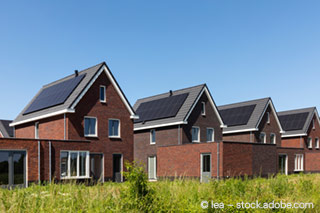A recent FiFo Discussion Paper ‘Climate Protection and Housing Needs’ by Andreas Becker and Klaus Mackscheidt highlights the importance of this topic nowadays. The essay explores options for flexible housing and new construction in the face of immigration. The authors argue that it is better to take many small steps instead of immediate revolutionary changes.
The current situation in housing in terms of climate protection is controversial. Although there are climate goals set, there are still significant amounts of fossil energy used in housing which don’t allow to achieve these climate goals. An enormous amount of electricity and gas is used for heating in winter, daily hot water needs, kitchen and electrical household appliances. Due to inadequate thermal insulation, a lot of fossil energy is lost in the cold seasons. Only a few can afford to build apartments without the usage of fossil energy. Therefore, there should be a compromise found that will allow the building of new houses that consider the well-being of the environment.
Firstly, the article emphasizes the need for a change in building methods and materials. It suggests separating CO2 emissions from the production of steel and cement and lowering them below the surface so that they cannot escape into the atmosphere. Recyclable building materials such as mycelium or bamboo could replace steel and concrete in the future. Also, investments in solar systems on the roofs of houses are desirable.Besides, part of the future demand for housing can be satisfied through wooden construction. However, this approach cannot solve the problem as the usage of wood for housing should be limited to save forests. The scientists also argue for a more balanced allocation of living space per person according to their needs.
The authors state that it is still important to fight against every tenth of a degree of global warming. Even if there are only small steps, they should be welcomed because the issue needs urgent solutions.
The paper was published posthumously, as Klaus Mackscheidt passed away on November 10th 2023. He was a passionate academic teacher, a great economist and an even greater person. Klaus Mackscheidt had been Director at the FiFo Institute for Public Economics for 50 years.
